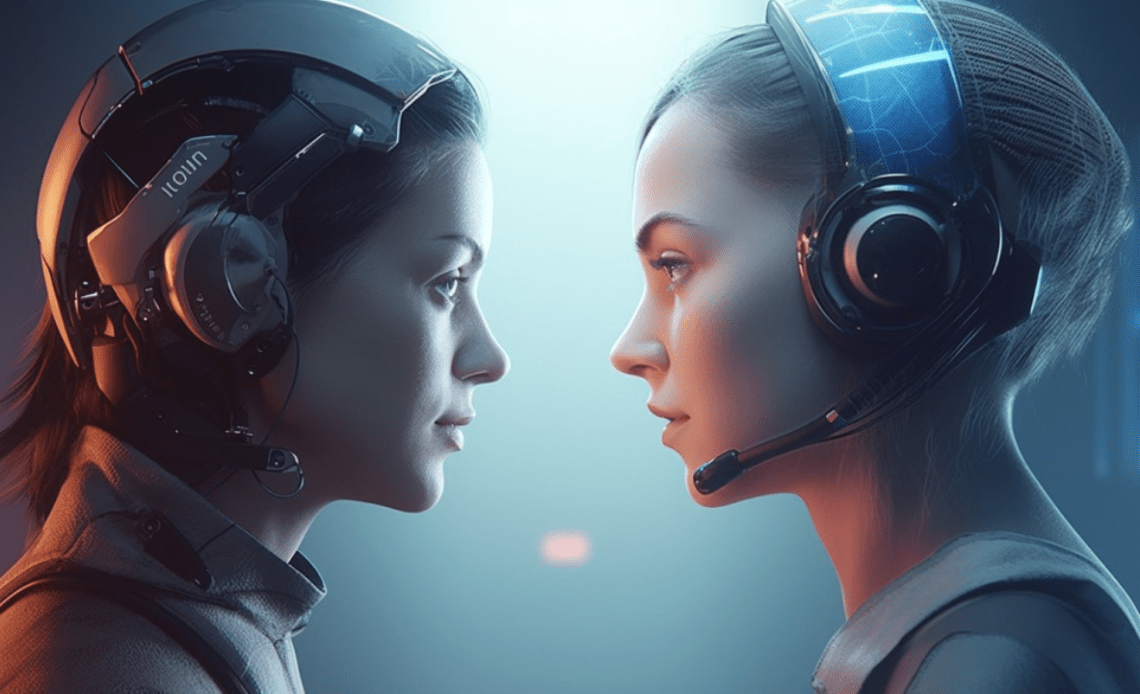Photo was created by Webthat using MidJourney
The Game-Changing Potential of AI Voice Synthesis
When the epic open-world PlayStation 4 game Red Dead Redemption 2 was developed in 2013, it took 2,200 days to record the 1,200 voices in the game with 700 voice actors, who recited the 500,000 lines of dialogue.
This monumental achievement seemed impossible for smaller studios to replicate, until recent advances in artificial intelligence (AI) made recreating human voices easier than ever.
With AI voice synthesis, game developers can now create automated real-time responses, offer near-limitless dialogue options, and customize speech based on a user’s unique input. However, the technology also raises profound ethical questions surrounding voice synthesis.
Empowering Game Developers with AI Voice Synthesis
In 2019, Australian software developer Replica Studios introduced a voice synthesizer platform for game developers. PlaySide Studios, an Australian game developer, utilized this tool during the preproduction phase of their game Age of Darkness: Final Stand.
Shreyas Nivas, the CEO of Replica Studios, expressed hopes that numerous studios could dream of building games like Red Dead Redemption 2, thanks to the accessibility provided by AI voice synthesis. Traditional methods of individually recording each line of dialogue are not only cost-inefficient but also time-consuming, requiring large teams.
With the use of AI, game studios gain easier access to a vast array of voices, significantly streamlining the development process.
Ethical Implications of AI Voice Synthesis
The availability of free online voice synthesizer tools capable of mimicking celebrities’ or fictional character voices has raised concerns about the ethics of voice synthesis. Often, these tools are used without the explicit permission of the artists being mimicked.
Recent reports from Bloomberg highlighted instances where voice actors were shocked to discover their voices being used in content they had not participated in, only to later learn that the broad terms of their contracts covered such uses.
These revelations emphasize the pressing need to address the ethical implications and establish guidelines for the use of AI voice synthesis.
Safeguarding Creative Industries with Licensing and Moderation
To address ethical concerns, Replica Studios has implemented a licensing model that ensures voice actors continue to earn from the use of their voices, even when they are not actively recording in the studio. This approach aims to transparently involve voice actors in the journey of AI voice synthesis.
Furthermore, content moderation policies have been established to prevent the misuse of voices in scams or illicit content. As AI technology continues to advance, the company acknowledges the need for ongoing learning and adaptation. While uncertainties persist, there is a commitment to moving forward with caution while fostering AI acceleration.
Actors, AI, and the Future of Performances
Although larger video game companies may still employ high-profile talent for voice acting, AI voice synthesis opens doors for smaller game studios and provides increased opportunities for early-career actors.
However, the Media, Entertainment, and Arts Alliance—an Australian union representing actors—calls for a policy to safeguard the quality and meaningful work of performers in the emerging field of AI voice synthesis.
The union asserts that actors should retain ownership of their voices, cautioning against perpetual licensing agreements.
CLICK HERE TO READ MORE ON WEBTHAT NEWS


